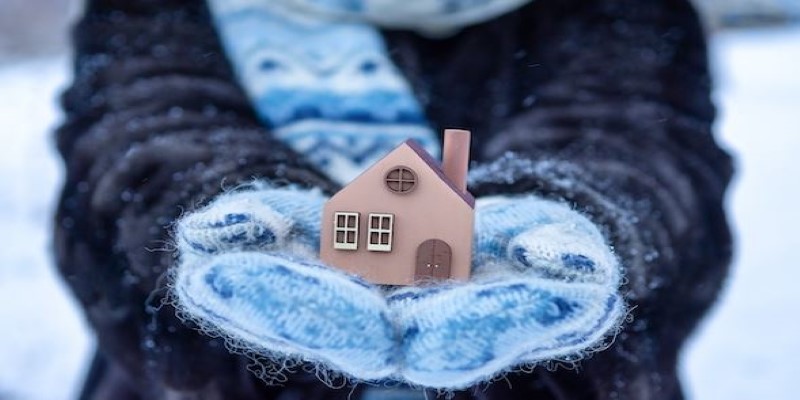Buying a home is often talked about like it's just about money, but timing plays a big role, too. The market doesn't stay still. Prices go up and down, supply shifts and sellers behave differently depending on the season. Whether you're a first-time buyer or someone looking to move, figuring out when to buy can make a big difference in what you end up paying and how many choices you have. There's no magic month, but each season brings a mix of pros and cons that can affect your experience in real ways.
Spring: Competitive But Full of Choices
Spring is one of the busiest seasons in real estate. As the weather warms up, so does the housing market. Sellers tend to list their homes during this time because families prefer to move during summer breaks, making spring the season with the highest inventory.
If you’re wondering when is the best time of year to buy a house, spring might sound appealing at first. There are usually more options to choose from, and homes are often presented in their best light—green lawns, blooming gardens, and long daylight hours help show a house at its full potential. But this also means you’re not the only one looking.
With more buyers entering the market, competition can be intense. Bidding wars are common, and you might find yourself needing to move quickly or stretch your budget to land a home. Sellers are well aware of the demand during spring and often price their homes higher. So, while you'll have more choices, you'll also need to move fast and come prepared with financing.
Summer: Fast-Paced and Still Pricey
Summer feels like a continuation of spring in many ways. The weather remains warm, school is out, and families have more flexibility to schedule a move. The inventory is still relatively high, although it starts to thin out by mid-August.

In terms of price, summer is usually on the expensive side. Many of the homes that hit the market in spring are either already sold or pulled off if they didn’t attract enough interest. That said, sellers who haven’t found a buyer by midsummer may become more open to negotiation, especially if they’re trying to close before the new school year starts.
There’s also the issue of moving logistics. Hiring a moving company during summer can be more expensive and harder to schedule, especially around holiday weekends. While you’re still likely to face competition, the sense of urgency that defines spring may have settled down a bit. This can create room for offers that are more measured and strategic, though that depends a lot on your local market.
Fall: A Balanced Window for Buyers
Fall doesn’t get the same attention as spring or summer, but it’s often one of the better times to buy a house. By September, the market starts to cool. Families have completed their moves before the start of school, and sellers with unsold homes may begin adjusting their expectations.
If you're looking for a mix of decent inventory and less competition, fall strikes a solid balance. Sellers are typically more motivated, and you can sometimes find homes listed at a lower price than earlier in the year. That doesn't mean it's a bargain-hunters paradise, but there's more space to negotiate.
Buyers during fall may benefit from faster closings. With fewer people shopping, mortgage lenders and real estate agents have more room in their schedules, helping the process move faster. And while the days are getting shorter and the weather cooler, it’s still comfortable enough for inspections and open houses.
The main trade-off with fall is reduced inventory. While some new listings will still appear, the overall number of available homes declines. But if you're not chasing after the hottest new listing or competing with a dozen offers, that can work in your favor.
Winter: Fewer Listings, But More Wiggle Room
Winter is the quietest season for real estate, especially around the holidays. Fewer people are looking to move, and most sellers wait for spring to list their homes. On the surface, that might make winter seem like the worst time to buy. But for some buyers, it can actually be the best.

The smaller pool of buyers gives you leverage. Sellers who keep their homes on the market during winter often do so because they need to sell—relocation, financial reasons, or personal timing. That motivation can open the door for meaningful price reductions or flexible terms.
This slower pace also gives you breathing room. With less pressure to act immediately, you can think more clearly, arrange inspections, and have more detailed conversations with lenders and agents. Just be prepared to look past poor weather or bare landscaping when judging a home's potential.
One downside is that you’ll have fewer homes to choose from. This limits your options, but the homes that are available may represent good value. If you're willing to look past the seasonal quiet, winter can provide a less stressful buying experience.
Conclusion
Choosing when to buy a house isn’t about hitting one perfect moment—it’s about knowing what you want out of the process. If variety matters most, spring and summer give you the widest range of choices, but you’ll likely pay more and move faster. If you prefer to take your time or hope to find a better deal, fall and winter can offer lower prices and more negotiating power. Timing shapes how your search will feel and what you might pay, but no season guarantees the best outcome. Understanding your priorities is what makes the timing right. That’s what really matters when buying a home.












